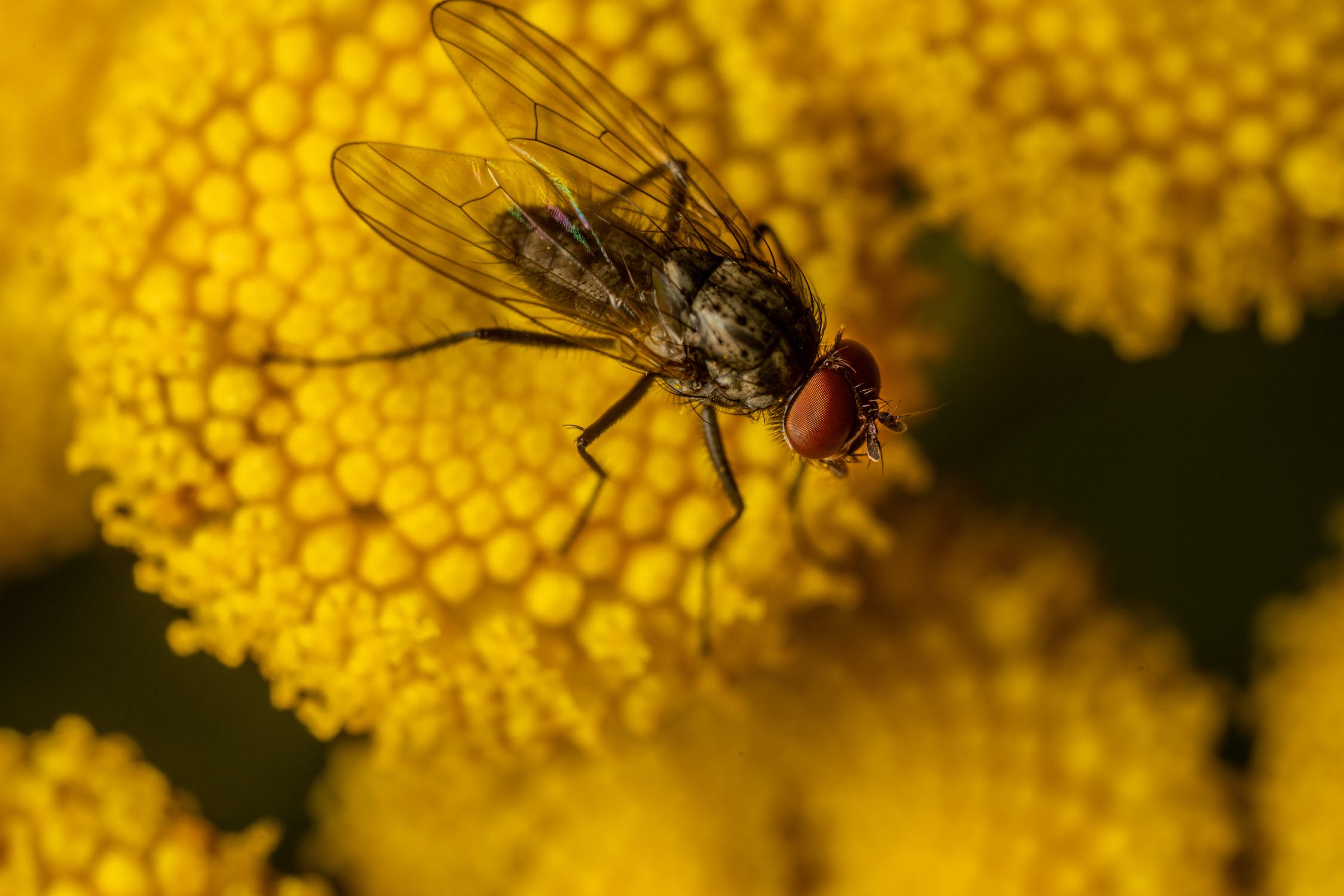
Are you annoyed by a constant buzzing sound? Cluster flies are a likely culprit. These fall nuisance pests can be seen buzzing around your Portland-area home as the days grow shorter and temperatures drop. Keep an eye out for these large, black flies and learn how to get rid of them before they infest your home.
What are cluster flies?
Cluster flies get their name based on their habit of forming clusters typically in your wall voids or attics. These pests, are found throughout the U.S., including here in the Pacific Northwest, and are also known as attic flies. They become a nuisance for homeowners in the fall because they want to enter your warm home to hibernate and keep warm. They are also annoying in the spring when they try to leave your home or other outbuildings.
Cluster flies vs. House files: What’s the difference?
In general, flies are among the most common and annoying pests. House flies and cluster flies are part of the same order (Diptera: Flies), different families (Muscidae: House flies, Polleniidae: Cluster flies.). House flies like to invade your summer picnics or your kitchen searching for a meal. Cluster flies come around in the fall looking for a place to stay for the winter.
Cluster flies are slightly larger than houseflies, and they are dark gray with golden hairs on their thoraxes and behind their heads. They also have light patches on their abdomens. In addition to being larger, they are also more sluggish in their movements than house flies.
Are cluster flies harmful to you or your property?
Despite being highly annoying, cluster flies won’t cause any damage to your home or property. They are also not considered vector pests meaning they do not commonly spread human diseases. They also do not breed in buildings. They leave their hibernate sites to return outdoors to breed. They are irritating because they can gather near windows in your Olympia-area home, buzzing noisily and flying around. They leave behind a greasy spot when spoiled.
However, according to Pestworld, the bodies of dead cluster flies can attract other pests such as dermestid beetles (who can damage woolen fabric). You should use a vacuum to get rid of dead, dying, or sluggish cluster flies. Another issue to worry about is that rodents (i.e. mice) like to eat cluster flies, so if you have them in your Vancouver-area home, they can attract rodents looking for food during winter.
How do cluster flies get in the house?
Cluster flies crawl into homes via cracks and gaps such as eaves, windowsills, and baseboards. They can also crawl under loose-fitting vinyl or aluminum siding. They like to hibernate for the winter in attics, basements, unused rooms, and wall voids.
Cluster flies like to eat nectar, and their larvae or maggots are parasites of earthworms. Earthworms are found everywhere, including here in the Pacific Northwest. This means that cluster fly problems are common around any lawn with a healthy earthworm population.
How to prevent a cluster fly infestation
The best way to prevent a cluster fly infestation is through exclusion, sealing your home and other outbuildings to prevent their entry. Here are some cluster fly prevention tips:
- Ensure the ongoing maintenance of window and door screens that fit snugly and effectively.
- Use mesh screens for attic and crawl space vents with a fine enough mesh size to block the entry of adult cluster flies.
- Eliminate gaps beneath wall siding and around window and door frames by applying caulking and sealing these areas, which serves as a preventive measure against adult cluster fly intrusion.
Cluster flies move slowly and don’t try to escape, so they’re easily caught with a vacuum or a fly swatter. If you use a vacuum cleaner, take out the bag and put it outside to keep the flies from coming back in.
How to get rid of cluster flies
Unfortunately, it’s challenging to deal with cluster flies that are already inside your attic and walls. Storebought products such as space sprays and fogs are largely ineffective, and fly paper, fly strips, and bug zappers don’t help either as these pests usually hibernate. The one exception is a professional pest control company.
Interstate Pest Management is a local company headquartered in Kelso, WA with offices in Olympia, Portland, and Vancouver. If you’re interested in eco-friendly fly control and removal near you, get in touch with us here or call us at (503) 832-4997.